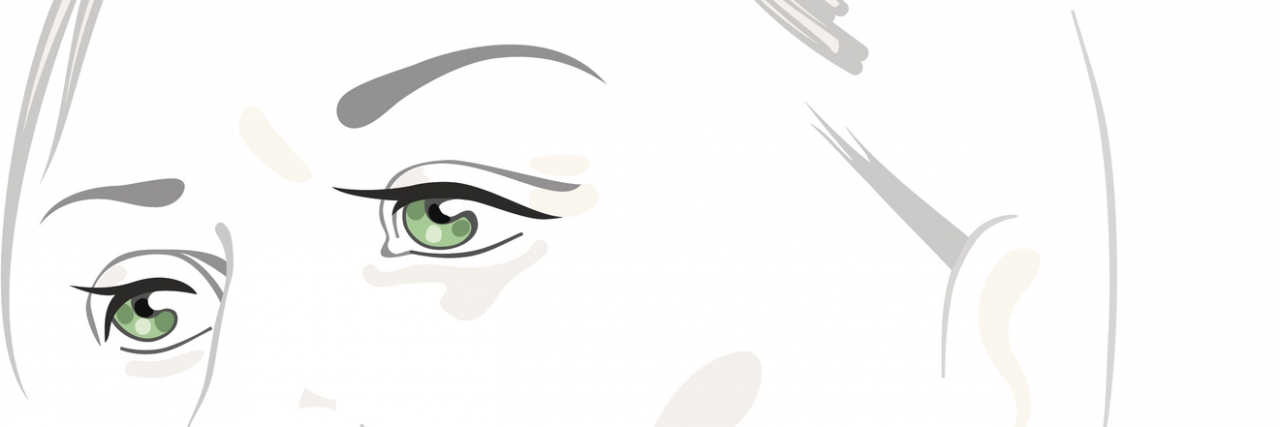It’s a routine we all know:
“How are you?”
“I’m fine, thank you…”
I have taken issue with these statements for a while now. As far as I can tell, social norm is the key shaper of this question and response, this little game of politeness we play. I’ve tried bending the rules before, because I was sick of feeling like I was lying with my response, and because I wanted to find out what would happen.
But answering outside the norm, in my experience, mostly throws the other person off balance. Takes them aback. Or perhaps, depending on your answer, elicits a superficial attempt at validation, generally skimmed over to the next topic. Because really, the original question is just a formality, an extension of a greeting or even just a greeting replacement. Sometimes, you’re even walking past each other when it’s said, and just keep walking anyway.
So. How am I?
Honestly?
I am depressed, anxious. Both. I have both, they’re always there. One may be more prominent at a given time, or perhaps they’re both equally at large or under the surface.
I am confused. I have recently started figuring out this roller coaster called “feelings,” after a lifetime of emotional repression, suppression, and numbness. And I’ve just been diagnosed with complex post-traumatic stress disorder (PTSD).
I am fatigued. No, not tired. Fatigued. I know there is a difference, because I was tired from pushing myself too hard for years, then with a mysterious illness came debilitating post viral fatigue. I was just getting the hang of that when a set of sleep disorders took over. Fatigue is tired on a whole other level.
I am sore. My musculoskeletal structure is all shonky from some unnamed inherited condition, and I have IBS and gluten sensitivity.
I am over it. Over doing everything as advised and still being chronically mentally and physically ill. Over “professionals” not seeing me as a person, not taking me seriously, or even taking advantage of me.
I am worn out. It’s a daily struggle being me, and it always has been.
I am lonely. I work full time, exercise in groups – but they don’t facilitate meaningful social relationships. I have some truly amazing friends, but they have lives of their own, most with partners and some with children. My family live in another country. I’m single. And my chronic illnesses, with all their complications, have begun making me anxious about going out anyway.
I am scared. Scared this is the rest of my life.
But: I am alive. I’ve actually tried replying with “alive” occasionally, and it’s interesting how people react. Some laugh, like I’ve caught them off guard because they have no idea how to or whether they even should respond. Or they think I’m making a joke. Others may reply, “that’s sad” – as in, it’s sad that’s the best I can say. And yes, if I’m quoting The Croods, in that I’m alive but I’m not living (I’m just not dying) – then yes, that is sad. But, on a better day, I could be quoting Sia – because, despite everything, “I’m still breathing; I’m alive.” Yes, that may still be shadowed by a tinge of sadness – but it also radiates resilience.
But really, what am I hoping you will say if I use any of these responses? What would I even say, if someone replied to me with one of these or something similar? I have absolutely no idea. Because “How are you?” is, as I said before, purely a social norm – we’re not talking about when a friend sits you down with a hot beverage and uses their concerned face. In that instance, I’m pretty sure what plays out would be a whole other game entirely.
Maybe there is no better alternative except to encourage honesty with those we trust or the next person who asks when we really need help.
Maybe it’s time we broke the rules and stopped asking “How are you?” unless we are actually genuinely concerned or curious, and prepared to offer support.
I know, it goes against what generations have been taught and is considered by and large as a fundamental of politeness. But this is a whole new generation, not just in terms of X, Y or Z, but a societal generation of awareness, acknowledgement, and, slowly, acceptance.
So no more pretenses. Let’s stop asking “How are you?” for the sake of social propriety, and keep it for when we really want to know about the other person. Let’s just stick with our original variations of “Hello.”
In fact, let’s start more hellos…

